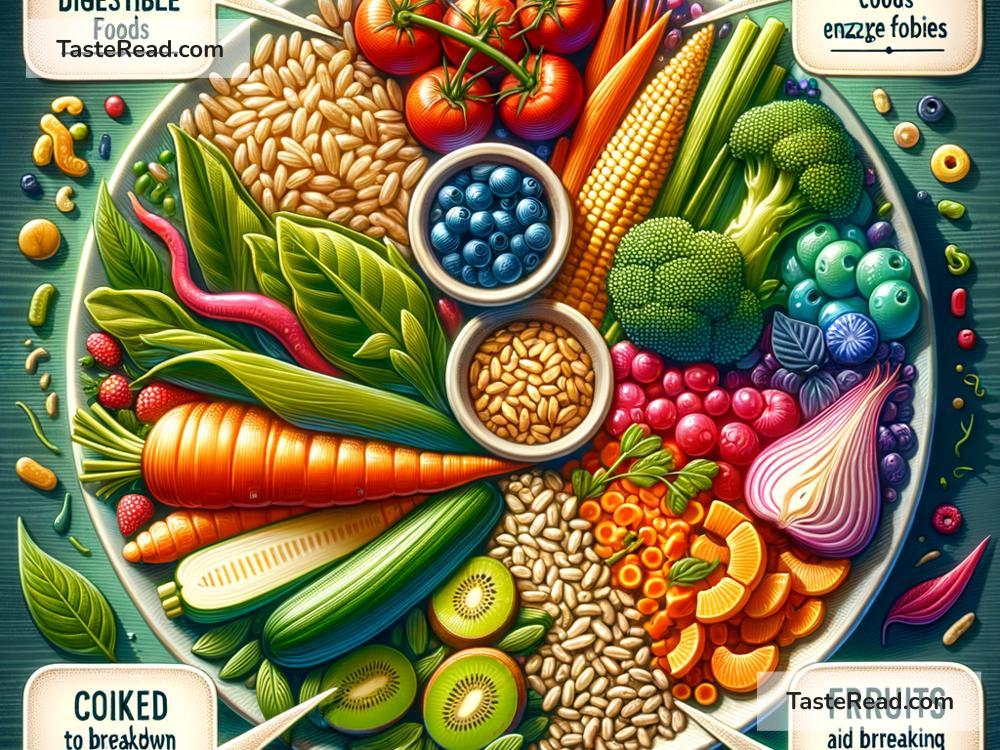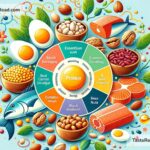Understanding the Role of Enzymes in Digestion: An Easy Guide
Have you ever wondered how your body breaks down the food you eat into energy and nutrients? The answer lies in little helpers called enzymes. These tiny proteins play a big role in digestion, making sure that the food you consume gets transformed into usable fuel for your body to function. In this article, we will explore how enzymes work, their role in digestion, and why they are so important for your health.
What Are Enzymes?
Enzymes are special proteins made by your body to speed up chemical reactions. Think of them as workers in a factory — each enzyme is assigned a specific job. In the case of digestion, enzymes help break down food into smaller molecules that your body can absorb and use.
Different enzymes work on different parts of your meals. For example, some enzymes break down carbohydrates (found in bread and pasta), others break down proteins (found in meat and beans), and others break down fats (found in oils and butter). Without enzymes, your body wouldn’t be able to break down food efficiently, and you’d feel tired and hungry even after eating.
How Does Digestion Work?
Digestion is the process of breaking food down into nutrients your body can use for energy, growth, and repair. It starts at the moment you take a bite of food and continues as the food travels through your digestive system.
Here’s a simplified version of how digestion works:
-
Mouth: When you chew your food, your saliva mixes with it. Saliva contains an enzyme called amylase, which starts breaking down carbohydrates into smaller sugars. For example, if you eat bread, amylase helps begin the digestive process by breaking it down while you chew.
-
Stomach: Once you swallow your food, it moves into the stomach. Here, gastric juices (which contain enzymes and acids) start breaking down proteins. The enzyme pepsin is a key player in this process.
-
Small Intestine (with help from the pancreas): As the food leaves your stomach and enters the small intestine, more enzymes jump into action. Your pancreas, a small organ near your stomach, releases enzymes like lipase to break down fats and protease to break down proteins. At the same time, enzymes like amylase continue breaking down carbohydrates.
-
Absorption: After the enzymes have done their work, the nutrients from your food — like glucose (sugar), amino acids (from protein), and fatty acids (from fats) — are absorbed by the walls of your small intestine and carried into your bloodstream. From there, these nutrients are delivered to different parts of your body for energy and repair.
Types of Enzymes Involved in Digestion
There are many types of digestive enzymes, but the main ones include:
-
Amylase: This enzyme breaks down carbohydrates (like starch in potatoes or bread) into simple sugars. Amylase is found in your saliva and is also secreted by the pancreas.
-
Protease (or Peptidase): This enzyme breaks down proteins (like those found in chicken or eggs) into amino acids. Protease is mainly active in the stomach and small intestine.
-
Lipase: This enzyme breaks down fats (like those in butter or cheese) into fatty acids and glycerol. Lipase is secreted by the pancreas and works in the small intestine.
These enzymes work together to make sure your food is broken down properly so your body can absorb all the nutrients it needs.
Why Are Enzymes So Important?
Enzymes are essential for digestion and overall health. Without them, your body wouldn’t be able to extract the nutrients from food, and you wouldn’t have the energy you need to live your daily life. Enzymes also help keep your digestive system running smoothly. If your body doesn’t produce enough enzymes, you may experience problems like bloating, gas, or indigestion.
For example, some people have a condition called lactose intolerance. This happens when their body doesn’t produce enough of the enzyme lactase, which is needed to break down lactose — a sugar found in milk. Similarly, low enzyme levels can cause food to be poorly digested, leading to discomfort and nutritional deficiencies.
How to Support Your Enzyme Health
There are a few ways you can support your body’s enzyme production and digestion:
-
Eat a balanced diet: Eating a variety of foods, especially fruits, vegetables, whole grains, and lean proteins, provides the nutrients your body needs to produce enzymes.
-
Stay hydrated: Drinking enough water helps enzymes work efficiently because digestion requires a good amount of fluids.
-
Chew your food thoroughly: Chewing helps break food down into smaller pieces and allows enzymes in saliva to start digesting carbohydrates.
-
Consider enzyme-rich foods: Some foods, like pineapple (contains bromelain) and papaya (contains papain), naturally contain enzymes that can aid digestion.
-
Avoid overeating: Eating too much at once can overwhelm your digestive system and make it harder for enzymes to do their job.
Final Thoughts
Enzymes are the unsung heroes of digestion. They make sure the food you eat is broken into small pieces so your body can absorb nutrients and get the energy it needs. While your body naturally produces enzymes, taking care of your digestive health through a balanced diet, hydration, and mindful eating can help these enzymes work their best.
By understanding the role of enzymes in digestion, you can better appreciate how your body processes food and stays strong, healthy, and energized. So, next time you sit down for a meal, you’ll know that behind the scenes, enzymes are hard at work keeping your digestive system running smoothly.
Happy eating!


